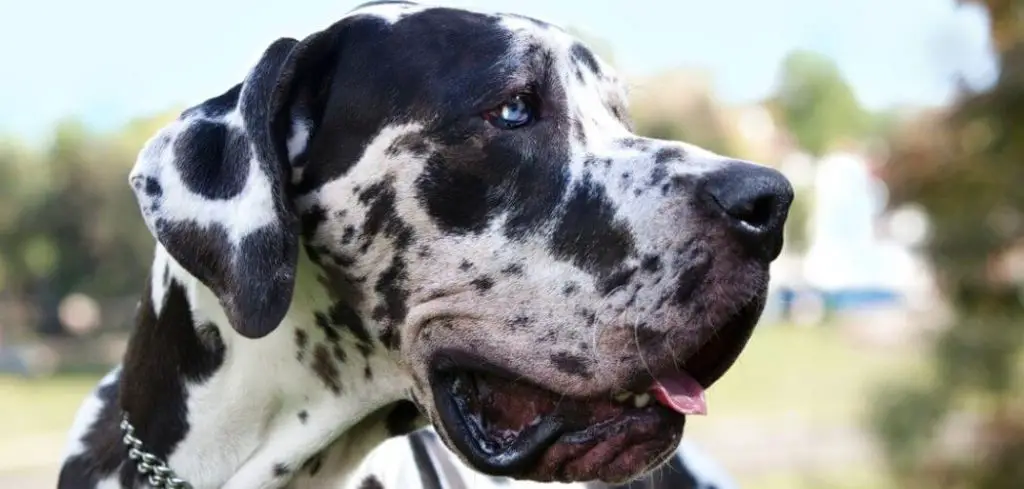Seeing your old dog not eating and pooping blood is a frightening experience for any pet parent.
Blood in the stool combined with appetite loss is never normal, especially in senior dogs who are more vulnerable to illness and complications.
We outline the common reasons why an old dog may not be eating and pooping blood, what you can do at home, and when to seek veterinary help.
Old Dog Not Eating and Pooping Blood — Why It Happens
An old dog not eating and pooping blood is often a sign of gastrointestinal irritation, infection, or something more serious like cancer or organ failure. Causes range from colitis and parasites to ulcers, pancreatitis, or ingestion of toxic substances.
For older dogs, internal diseases such as liver failure or clotting disorders can also lead to bloody stool.
Appetite loss makes the situation even more urgent, as seniors cannot afford to lose weight or become dehydrated.

Old Dog Not Eating and Pooping Blood: Common Causes
Colitis
Colitis, or inflammation of the large intestine, is a leading cause of bloody stools in dogs.
It can be triggered by stress, dietary changes, infections, or underlying conditions like inflammatory bowel disease. Colitis often produces soft stool streaked with red blood or mucus.
When paired with appetite loss, it suggests your dog is uncomfortable or nauseous. In senior dogs, repeated episodes can quickly lead to dehydration and nutritional deficiencies if left untreated.
Read more: Old Dog Not Eating and Throwing Up Yellow (Could it be bile reflux or organ disease?)
Gastrointestinal Ulcers
Stomach or intestinal ulcers are painful sores that may bleed into the digestive tract.
Older dogs are more prone to ulcers due to long-term medication use (like NSAIDs or steroids), chronic illness, or stress on internal organs. Signs include bloody or tarry stools, vomiting, drooling, and reluctance to eat.
Ulcers can be dangerous, as they may rupture or cause severe blood loss. In a senior dog, untreated ulcers can quickly become life-threatening.
Parasitic Infections
Parasites such as hookworms, whipworms, or giardia can cause bloody diarrhea in dogs.
Although parasites are more common in puppies, older dogs with weakened immune systems can also be affected. These infections may lead to poor appetite, weight loss, anemia, and weakness.
Because parasites feed off nutrients, an older dog may struggle to maintain weight even if their appetite improves later. Stool testing and treatment are necessary to clear the infection.
Pancreatitis
Pancreatitis, or inflammation of the pancreas, disrupts digestion and causes abdominal pain, vomiting, and diarrhea with blood.
Senior dogs, especially those with a history of high-fat diets, are at increased risk. They may appear hunched, restless, or extremely lethargic in addition to refusing food.
Pancreatitis requires prompt veterinary care. Left untreated, it can progress rapidly to systemic illness, shock, and organ damage in older dogs.
Cancer of the Digestive Tract
Cancer is a significant concern in senior dogs. Tumors in the stomach, intestines, or colon can cause bloody stools and loss of appetite.
Other signs may include unexplained weight loss, weakness, and chronic digestive issues. Sometimes blood is visible in the stool, while other times it may be dark and tarry.
Unfortunately, gastrointestinal cancers often go unnoticed until symptoms like blood and appetite loss appear. Veterinary evaluation is essential to determine options for care and comfort.
Toxins or Poisoning
Exposure to toxins such as rat poison, certain medications, or household chemicals can lead to gastrointestinal bleeding.
Many poisons interfere with blood clotting, which causes bloody stools and sometimes bloody vomit. Senior dogs are especially at risk because their bodies process toxins less effectively.
Refusal to eat, drooling, weakness, or pale gums may accompany bloody stool. Poisoning is always a medical emergency and requires immediate veterinary care.
What to Do If Your Old Dog Is Not Eating and Pooping Blood
If you notice blood in your dog’s stool, start by observing the color and consistency. Bright red blood often comes from the lower intestines or colon, while dark, tarry stool can signal bleeding higher up in the digestive tract.
Keep your dog hydrated. Offer fresh water or ice cubes, as dehydration can set in quickly with diarrhea and blood loss. You can also try offering bland, soft foods like plain chicken and rice, but if your dog refuses, do not force-feed.
Monitor their energy levels and frequency of bowel movements. A single streak of blood may not be an emergency, but repeated episodes with appetite loss should not be ignored.
Do not give human medications like Pepto-Bismol or aspirin, as these can worsen bleeding or mask symptoms. For seniors, at-home care should only be supportive while arranging veterinary help.
When to Call or Visit Your Vet
Contact your veterinarian immediately if your old dog refuses food for more than 24 hours and continues passing bloody stool.
Seek emergency care if you notice large amounts of blood, tarry stools, repeated vomiting, or signs of collapse and weakness. These may signal severe bleeding, organ failure, or poisoning.
Chronic cases also require evaluation. If your dog regularly passes bloody stools or shows long-term appetite loss, conditions like inflammatory bowel disease, parasites, or cancer could be at fault.
For senior dogs, waiting too long can allow otherwise manageable problems to progress into emergencies. Quick action ensures the best possible outcome.
Read more: Old Dog Not Eating (Causes and what to do)
Key Takeaway
When an old dog is not eating and pooping blood, it is always a red flag. Causes range from colitis and parasites to ulcers, cancer, or toxin exposure.
At home, you can provide hydration and bland foods if tolerated, but veterinary care is essential for diagnosis and treatment.
Senior dogs are more fragile, and blood in the stool should never be dismissed. By acting quickly, you give your companion the best chance at recovery and comfort in their golden years.
